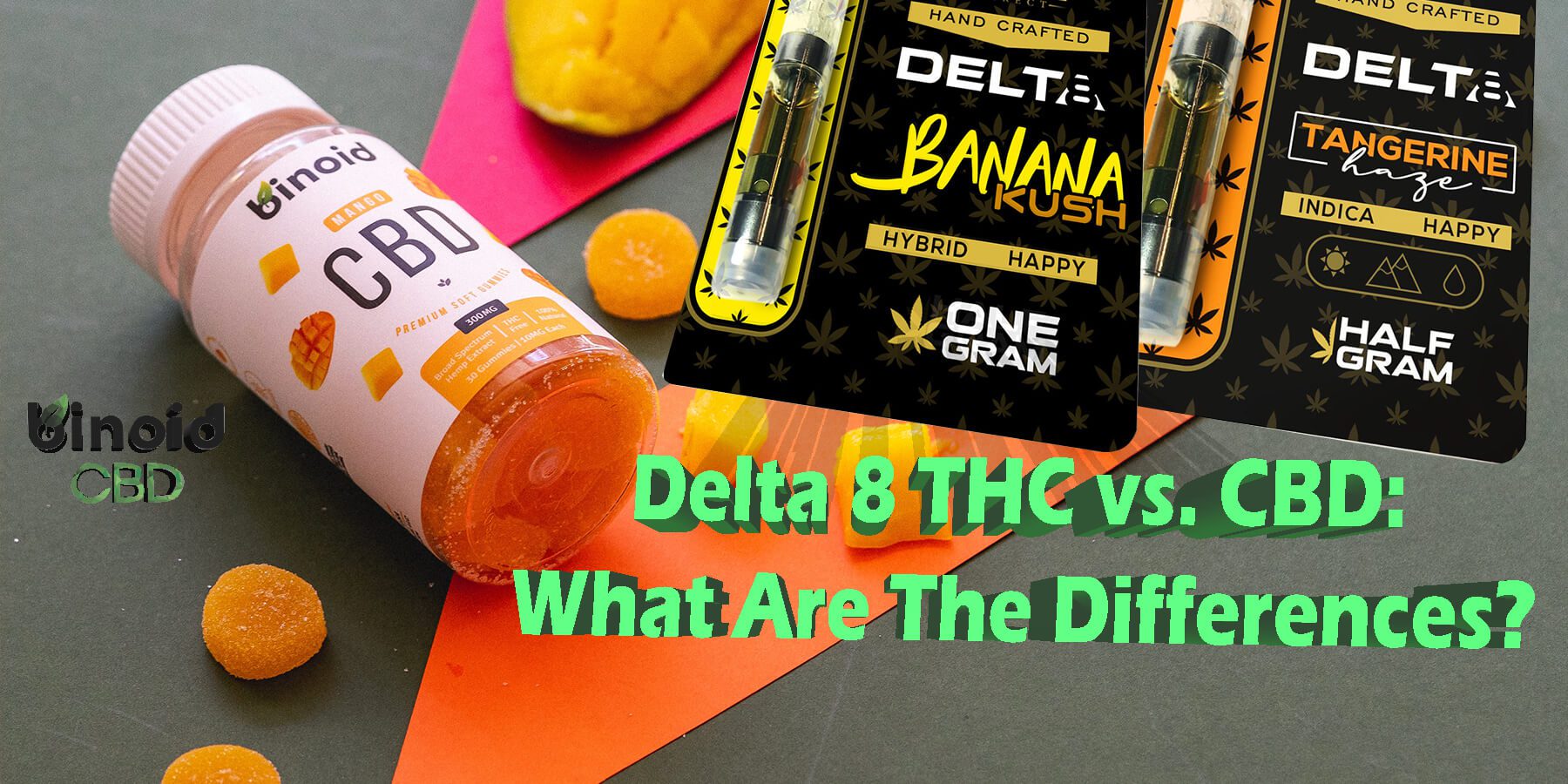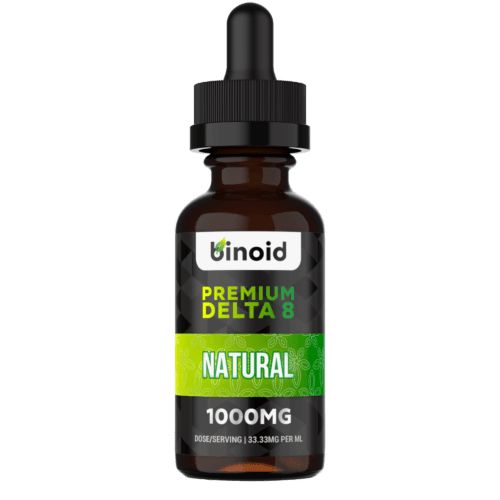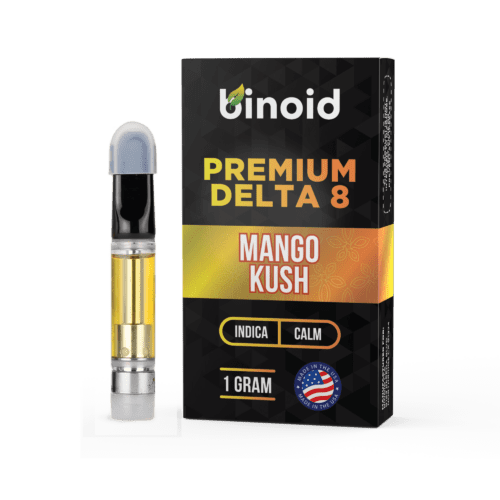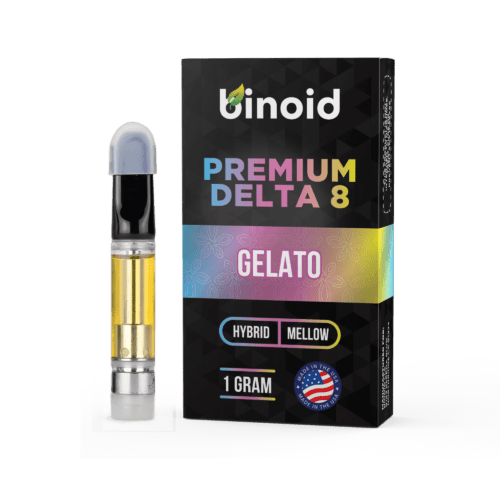A lot of us who got into CBD are now beginning to explore other compounds in cannabis, because we’ve learned a lot about how individual cannabinoids can be useful in different ways. One cannabinoid that’s been getting a lot of attention lately is Delta 8 THC, which is largely misunderstood, and not as intensively studied in clinical environments as CBD.
If you’ve been thinking about adding Delta 8 to your wellness regimen, it is important to be aware of both its uses and its potential side effects.
To buy Delta 8 THC Products Click Here
-
Product on sale
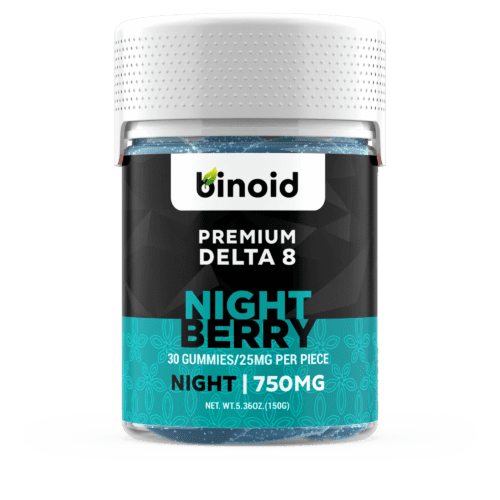 Delta 8 THC Gummies – Limited Edition$33.99
Delta 8 THC Gummies – Limited Edition$33.99$38.99 -
Product on sale
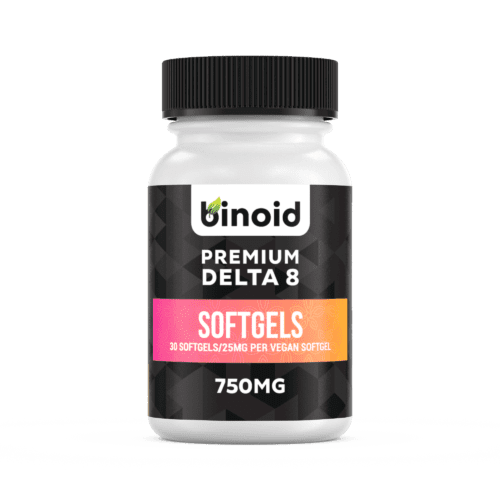 Delta 8 THC Capsules 750MG$31.99
Delta 8 THC Capsules 750MG$31.99$69.99 -
Product on sale
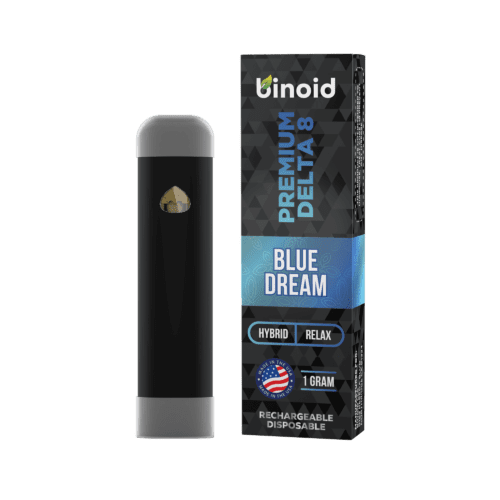 Delta 8 THC Rechargeable Disposable Vape$26.99
Delta 8 THC Rechargeable Disposable Vape$26.99$54.99
What is Delta 8 THC?
Delta 8 THC is a minor cannabinoid found in cannabis, and it’s present in both hemp and marijuana. In both of these plants, there’s only a trace amount, which is why extracting it is very difficult and costly. Delta 8 is technically THC, which is the psychoactive compound in cannabis that gets marijuana users high. But, it’s delta 8’s big sister delta 9 that gives us the majority of THC in the plant material.
Delta 8 is psychoactive like its sister, but it’s not as strong, and tends to produce a more calming type of high, according to users of the compound. Many have found Delta 8 THC to provide most of the benefits of Delta 9 THC, but without the side effects such as anxiety and paranoia. The high associated with Delta 8 THC can be described as 50-70% of Delta 9 THC. Which does not sound like a big difference, but it is. This is because Delta 8 THC is legal, while Delta 9 THC is NOT.
In order to produce delta 8, companies must use specialized extraction methods that isolate the trace amount present in the plant material and concentrate it in a way that maintains the compound’s structural integrity.
Is Delta 8 THC Legal in the United States?
Manufacturers have found how to extract Delta 8 THC in large quantities from the Hemp plant. This means that the cannabinoid is technically as legal as CBD. Unless specifically identified by different states. For example, a few states find Delta 8 THC illegal:
ALASKA, ARIZONA, ARKANSAS, DELAWARE, IDAHO, IOWA, MISSISSIPPI, MONTANA, AND NEBRASKA.
Since CBD comes from the hemp plant as well. They both are in Marijuana, but in very minor quantities. Manufactures have figured out how to extract Delta 8 THC from Hemp. Therefore making it legal.
Where To Buy Delta 8 THC Online?
Products such as Delta 8 THC Vape Cartridges are quickly becoming a fan favorite for Binoid CBD customers. However, customers can buy Delta 8 THC capsules, vape cartridges of different strains and flavors, as well as new products coming out such as gummies and tinctures. The best place to buy Delta 8 THC is online at: https://www.binoidcbd.com/collections/delta-8-thc-products
Delta 8 THC Benefits and Properties
Now, let’s get into the potential properties of delta 8, according to clinical researchers. Note that research is limited on the compound because of how new the delta 8 industry is. In time, we’ll have much more science-based information regarding what it’s capable of. Our customers have stated benefits with the following effects:
#1: Pain Relief
It appears that delta 8 may offer analgesic properties which relieve pain. Analgesics manage pain levels by disrupting the communication between the nerves and the brain. When the body is in pain, nerves send signals to the brain’s pain receptors, which is how pain is actually felt. Analgesics interfere with this signaling process to minimize pain effectively.
#2: Stress Relief
Delta 8 seems to possess potential anxiolytic properties, meaning that it can offer a calming effect on the mind. It may do this by playing a role in regulating cortisol and serotonin levels, which are two neurotransmitters that largely determine our mood and stress levels.
#3: Relief from Nausea
Delta 8 may help reduce feelings of nausea, as well as instances of vomiting, due to antispasmodic effects along the digestive tract.
#4: Appetite Booster
It appears that delta 8 has the potential to improve appetite, which indicates that it may be useful to those at risk of health complications due to a struggle to eat food daily.
#5: Neurological Benefits
Delta 8 may offer neurological benefits thanks to potential neuroprotective properties. This means that delta 8 may be able to protect the neurons in the brain from cognitive decline, traumatic brain injuries and the effects and symptoms of epilepsy.
Get our most popular Delta 8 vape cartridge here:
Delta 8 THC Side Effects
Now, let’s break down the potential side effects of delta 8 THC. Again, research is very limited at this time, but these are the side effects that are most commonly reported.
#1: Dry Mouth
A person may experience temporary dry mouth, only while the effects of delta 8 are active in the system. Note that this does not indicate dehydration, but rather is an effect that the compound may have on the salivary glands.
#2: Grogginess
A person may feel groggy or fatigued after taking delta 8. This is another potential side effect that should subside once the effects have worn off.
#3: Psychoactive Effects
Delta 8 is a psychoactive compound, so taking it will get you high. Besides the fact that this effect may be unwanted by some, it also indicates that the compound is ultimately illegal in states in which marijuana is illegal, due to the THC content.
What is CBD?
Time to compare all of this information to CBD. CBD is cannabidiol, and it’s the dominant compound in hemp. Unlike delta 8 and delta 9 THC, CBD is non-psychoactive, and so it will not get you high. CBD has been far more widely studied than delta 8, and therefore many of its properties have been heavily researched, as you’ll see below.
-
Product on sale
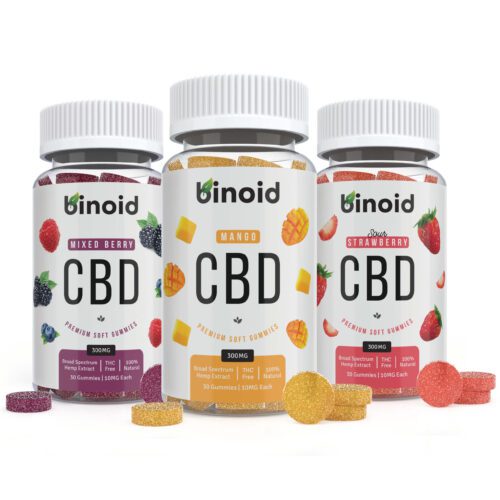 CBD Gummies$26.99
CBD Gummies$26.99$49.99 -
Product on sale
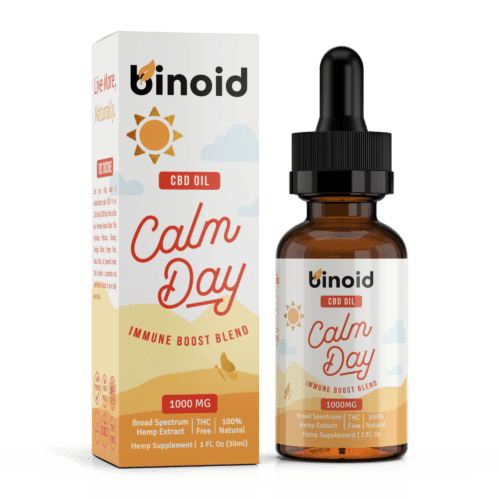 Binoid Calm Day CBD Oil – Immune Boost$28.99
Binoid Calm Day CBD Oil – Immune Boost$28.99$64.99 -
Product on sale
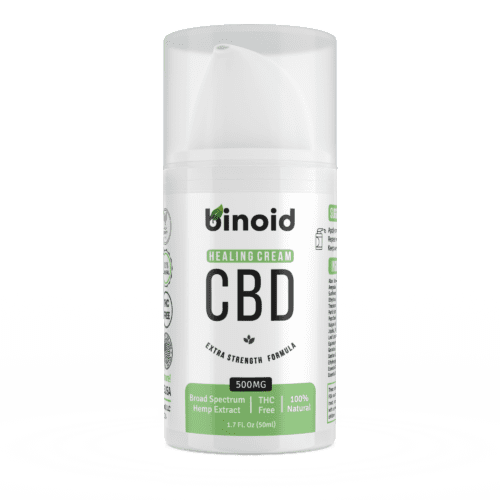 Binoid Healing Cream – Extra Strength$39.99
Binoid Healing Cream – Extra Strength$39.99$74.99
Potential CBD Benefits
Interestingly, CBD and delta 8 share many of the same properties in common. For a full list of 31 CBD benefits click here:
#1: Stress Relief
CBD is another cannabinoid that seems to have a regulatory effect on neurotransmitters in order to potentially calm stress.
#2: Pain Relief
CBD has been studied for both its anti-inflammatory and analgesic properties, which is why it’s so commonly used for pain-related ailments.
#3: Anti-Inflammatory Effects
Because of its potential anti-inflammatory effects, CBD may be useful to those with inflammatory conditions that are not pain-related.
#4: Neuroprotective Properties
CBD has been studied for its neuroprotective properties that seem to basically match those of delta 8. This is why CBD is widely used among those who suffer from seizures.
#5: Digestive Aid
CBD may offer usefulness to those dealing with a wide range of digestive issues, as it could soothe inflammation along the digestive tract while providing antispasmodic properties as well.
#6: Sleep Enhancer
CBD is commonly used for sleep, as its potential to balance the neurotransmitters may help enhance one’s sleep cycle.
Side Effects of CBD
These are the most commonly reported side effects that are known. Note: Because CBD is not psychoactive like delta 8, it won’t get you high.
#1: Dry Mouth
Some CBD users report dry mouth, especially when CBD is taken in particularly high doses or concentrations.
#2: Grogginess
CBD may cause grogginess, especially if it’s taken in a particularly high amount at one time.
CBD vs Delta 8 THC: Negative Interactions?
Here, we can examine the possibility of either of these cannabinoids causing negative interactions with medications. While it’s been established that cannabinoids are nontoxic to the human body, they may interact with particular drugs due to the metabolization process.
We know that CBD requires CYP3A4 to metabolize, and this is the same enzyme responsible for breaking down a large majority of prescription medications. Therefore, there is a potential for CBD to cause certain drugs to stay in the body longer, which could be concerning. We also know that THC induces the enzyme CYP1A2, which means that it may make certain drugs less potent. We do not know if this applies to both delta 8 and delta 9 THC, or just the latter, as more studies need to be done.
What we can say is that whether you wish to take either delta 8 or CBD, or both, it’s important that you speak to your doctor, even if you’re not on any medications.
Final Thoughts
Delta 8 is a psychoactive compound that’s structurally different from CBD, and its legal status is not as simple to understand as cannabidiol. If you wish to try delta 8, it’s important to be aware of any side effects that it may cause, and also fully understand what it can be used for so that you are able to reach your wellness goals.
To buy Delta 8 THC Products Click Here
-
Product on sale
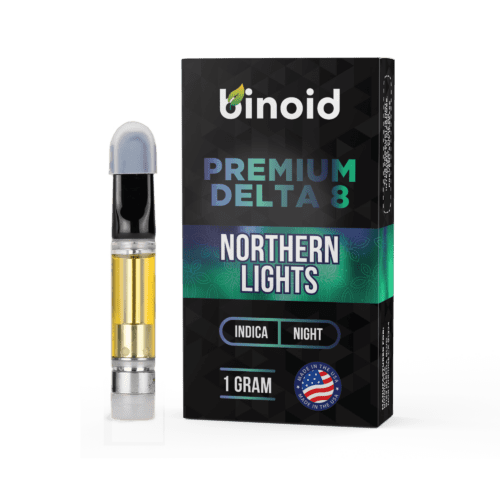 Delta 8 THC Vape Cartridge – Northern Lights$26.99
Delta 8 THC Vape Cartridge – Northern Lights$26.99$59.99 -
Product on sale
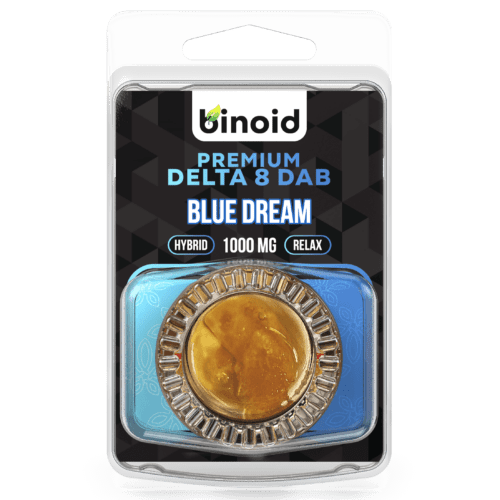 Delta 8 THC Wax Dabs$25.99
Delta 8 THC Wax Dabs$25.99$44.99 -
Product on sale
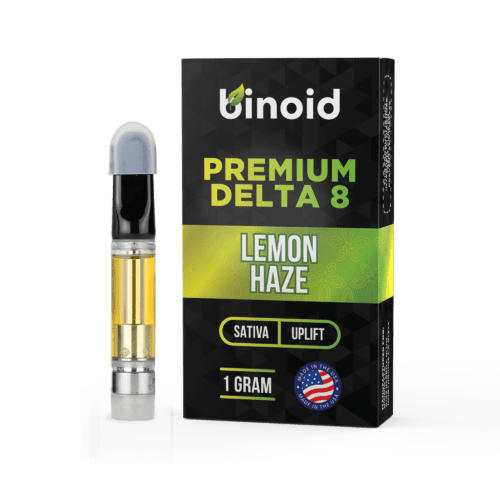 Delta 8 THC Vape Cartridge – Lemon Haze$26.99
Delta 8 THC Vape Cartridge – Lemon Haze$26.99$54.99

